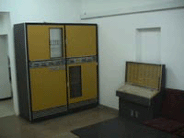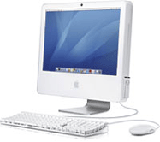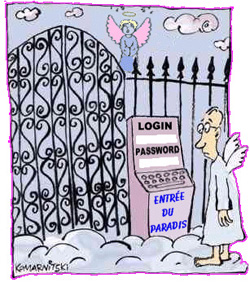 |
Promoting
access to ICT (information and communication technologies) for seniors |
 |
| A computer in 1967/73... | ... and another one nowadays ! |
|
The aim of the E-SENIORS association is to fight against e-exclusion by providing access to and training in information and communication technologies for seniors and/or disabled people, with the purpose of: : • bridging and shrinking the digital gap between generations; • caring for elders by fighting against senior isolation, and; • opening new horizons for the efficient use of free time. Our main offer, since our creation 5 years ago, has consisted in group courses on ICTs for seniors in different public locations (in several quarters of the city and in two surrounding departments). In response to increasing demand after the appearance of several newspaper articles concerning our specific method, we have been constantly opening new locations all over the Ile de France region in order to provide a “proximity” service which takes into account the rhythm, interests and needs of our target population. Besides teaching “basic computer skills”, i.e. how to use a computer to type a text, to communicate by mail with friends or relatives, to seek information on the Web, or to make life easier through e-administration, we have opened more thematically-oriented workshops for “advanced” students”, dealing with, for example, digital images and sounds, and interactive messaging and chat. Step by step, we have added new activities like “writing memories”, “karaoke with old French songs”, and conferences and meetings dealing with the fight against e-exclusion or how ICTs can help one live better while growing older. All this is accomplished with the concept of a “cyber seniors club” in mind, inducing socializing on an informal level. This is a quasi non-existent concept in most big cities! |
You really need E-SENIORS services!  Life begins at 50!
|
Our second target population is people with reduced mobility (elderly people living in their homes). For them, we offer: computer home/personal training or assistance; help with purchasing and installation of computer equipment, and; communication with the help of audio-visual accessories, for offering both social and administrative support services as well as technical support and hotline help. For these people with identified risk factors and/or chronic conditions – who stay (mostly) alone in their homes – we aim to improve quality of life through greater autonomy by offering bidirectional and interactive remote- and video-assistance, based on computerized, “extranet”-type services in the sense that the TCP/IP network is used to connect the home to external services (for prevention, management, support, etc.) or to the “rest of the world” (which includes friends and family).
Last but not least, we work with people in retirement homes, day-care centers (for, for example, MCI or Alzheimer patients) and other specialized institutes. Nowadays, life expectancy is increasing because of progress in science and medicine. On the other hand, there is an insufficient number of retirement homes or day-care centers and only the more expensive ones provide services not only linked to survival! For this target population, our experienced staff offers cognitive and physical stimulation through interactive games, using Nintendo consoles, Wiifit balance boards or other online games. Of course, we work together with the resident-care staff, as well as with doctors, physiotherapists and others. Within the scope of these activities, we have already experimented with the use of a remote-control set (similar to the Wiimote control of the Nintendo console) with Bluetooth and Wifi technologies, for remote control of a TV set linked to a computer. The underlying idea here is to offer a replacement solution for the keyboard and mouse for people who are confined to a wheelchair or to a bed.
Just as an example : the aim of the training is to show,
after a short technical introduction about using the “tools”, the interest
and benefits of the practical applications of the computer and, specifically,
the internet, in terms of:
-
intellectual autonomy and stimulation
·
learning possibilities in practical
as well as intellectual domains
·
interactive games (scrabble, bridge,)
·
information search about health, travelling, banking, investments, institutions...
-
communication: mail, chat, forums, messages, telephone, webcam...
·
keeping contact with the nearest and the dearest
·
creating new relationships, meeting
people
·
participating in discussion groups
-
gaining money and time
·
online administration (income tax, certificates...)
·
online shopping and banking
·
price comparison
·
discount and “last minute” buying
 |
| Early computer built in 1954 |
